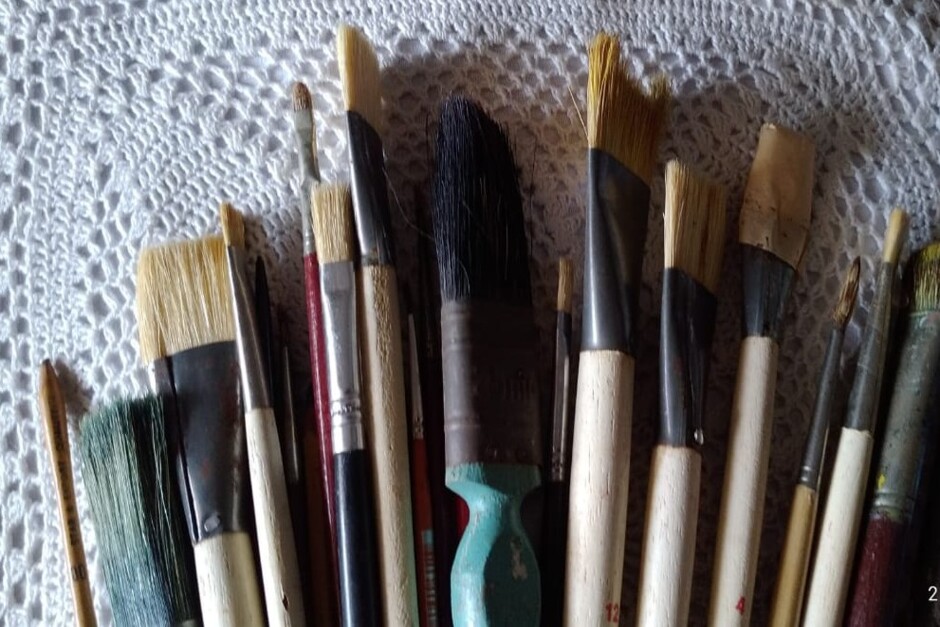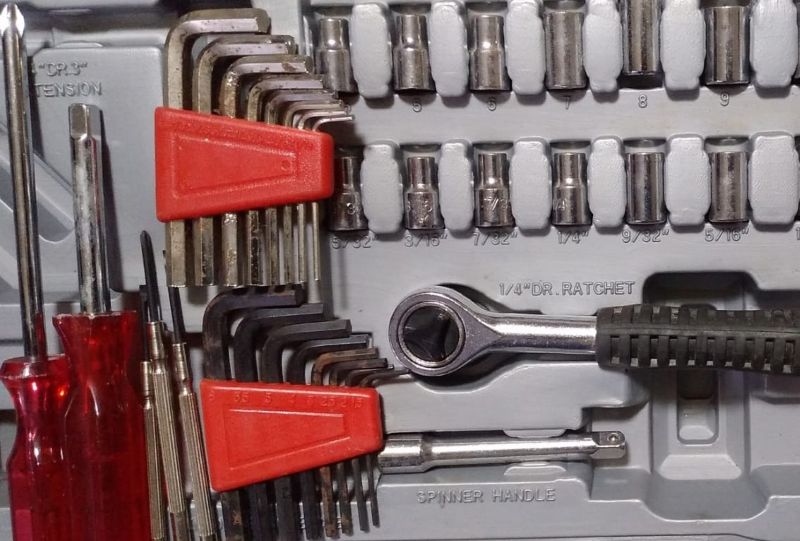Achieve Success: Stop Blaming Your Tools

Own Your Success
It’s a classic saying: "A bad workman blames his tools."
Think about it. When something goes wrong, whether it's a wobbly table leg, a poorly painted wall, or even a missed shot in sports, it's easy to point fingers. "Oh, this hammer is faulty," or "The brush bristles are uneven," or "It's this stupid racket!"
As students, we sometimes fall into the same trap. If we get a poor grade, the easy route is to blame the textbook for being confusing, the teacher for not explaining properly, our friends for being distracting, or even our parents for not providing the "perfect" study environment or resources.
But here’s a powerful truth: While having good tools can certainly help, success is rarely about having the best tools. It's about how you use the tools you have, and more importantly, about taking ownership of your effort and results.
The "Blame the Tool" Trap in Sports
- Badminton: You see players, even experienced ones, after a bad shot or losing points, look at their racket with disgust. The implied message? "The problem isn't me; it's this darn equipment!" But as you rightly point out, badminton is fundamentally about skill, footwork, agility, and mental toughness – how you wield the racket matters far more than how expensive or flashy it looks. It's said that 99% of winning comes from how you use the racket, not the racket itself. In fact, having good, comfortable shoes is arguably a more impactful "tool" than a top-of-the-line racket if your movement is hindered.
- Tennis, Golf, Cricket: This behavior isn't unique to badminton. Tennis players scowl at their rackets, golfers glare at their clubs, and cricketers might eye their bats after a poor performance. It's a natural human tendency to deflect blame when things go wrong.
- The Reality Check: Most of the time, the "tool" (the racket, club, or bat) is only as good as the person holding and using it. The real issue often lies in technique, focus, practice, or mindset. The best response isn't to blame the equipment, but to take a deep breath, refocus, and adjust your approach, trusting in your own skills.
From the Classroom to Life: Stop Blaming, Start Owning
This principle translates directly to your academic journey:
- Poor Marks? Look Inward: When you get a low grade, the immediate, easy reaction might be to blame external factors: "The test was unfair," "The teacher didn't teach this," "My textbook is old," "I don't have a quiet place to study."
- The Empowering Alternative: The path to improvement begins when you stop blaming and start owning. Ask yourself: "What could I have done differently?"
- Did I study effectively?
- Did I ask for help when I was confused?
- Did I manage my time well?
- Did I focus on understanding the material or just memorizing?
- How can I use the resources I do have more effectively?
Taking responsibility doesn't mean you're solely to blame for every challenge, but it means recognizing the power you have to influence your outcomes through your own actions and attitude.
Inspiring Examples: Achieving Greatness Without the "Best Tools"
History is full of incredible individuals who achieved monumental success despite facing significant disadvantages and lacking the "best tools." They didn't wait for perfect circumstances; they made the most of what they had and focused on their own effort.
- From Government Schools to National Heroes:
- Dr. A.P.J. Abdul Kalam: Rose from extremely humble beginnings and studied in government schools that were far from being equipped with modern facilities. Yet, he became a world-renowned scientist and the President of India. He didn't blame his background or his school's resources; he focused on learning, working hard, and contributing.
- Dr. K. Kasturirangan: Another eminent scientist who came from a modest background and studied in public schools, eventually leading India's space program. He fought through limitations to reach the pinnacle of scientific achievement.
- Lal Bahadur Shastri: India's second Prime Minister grew up in poverty and faced immense challenges, including swimming across a river to get to school because he couldn’t pay for the ferry fare. His early "tools" were incredibly limited, but his determination was not.
- Countless other Civil Servants and Scientists from government schools across India have achieved great things, proving that a less-equipped school or a local medium education is not a barrier if the drive and discipline are present.
- Global Icons Who Defied Limitations:
- Oprah Winfrey: Her early life was marked by extreme poverty, abuse, and hardship. Her starting "tools" were incredibly disadvantageous. Yet, she didn't let her past define her or become an excuse. She owned her narrative, worked relentlessly, and built a media empire, demonstrating immense resilience and self-reliance.
- J.K. Rowling: Before Harry Potter, she was a single mother living on welfare, facing numerous rejections from publishers. She famously wrote early ideas on napkins because she couldn't afford notebooks. She didn't blame her poverty, her circumstances, or the publishers' rejections; she kept writing, believing in her story, and persisting with the limited "tools" she had.
These individuals didn't achieve greatness because they lacked resources, but because they refused to let that lack be an excuse. They focused on their internal strengths: their resilience, their work ethic, their determination, and their willingness to learn and adapt.
Applying "Own Responsibility" to Your Student Journey
It’s time to shift your mindset from external blame to internal power.
- Assess Your "Tools" Realistically: Acknowledge the resources you have (textbooks, teachers, internet access, library). Are they perfect? Maybe not. But are they sufficient to learn and make progress? Usually, yes.
- Focus on How You Use Your Tools: Instead of complaining about a textbook, focus on how you can understand the material. Can you read it carefully, take notes, look up difficult concepts online, discuss it with classmates, or seek clarification during designated times?
- Identify What YOU Can Control: You can't control the curriculum or your teacher's style, but you can control your study habits, your effort, your attitude, your focus in class, and how you seek help.
- View Setbacks as Feedback: A low grade isn't a judgment on you; it's feedback on your preparation and understanding for that specific assessment. Use it to analyze your mistakes and adjust your study strategy.
- Find Solutions, Not Excuses: If your study environment is noisy, can you find a quieter spot (library, park, a friend's house)? If your internet is slow, can you download materials when it's faster or use a local library's connection? Focus on finding practical solutions within your reach.
- Be Your Own Best "Tool": Your most powerful assets are your brain, your work ethic, your curiosity, and your determination. Invest in these by staying focused, practicing consistently, and never giving up.

Your Effort is Your Most Powerful Tool
Having the latest gadgets, the most expensive books, or the "perfect" learning environment can provide an advantage, but they do not guarantee success. Your willingness to work hard, to persevere through challenges, and to take responsibility for your own learning journey are far more potent forces.
Stop blaming your "tools" and start empowering yourself by owning your effort, your attitude, and your journey. That's how you truly shine and win, regardless of the hand you're dealt.
